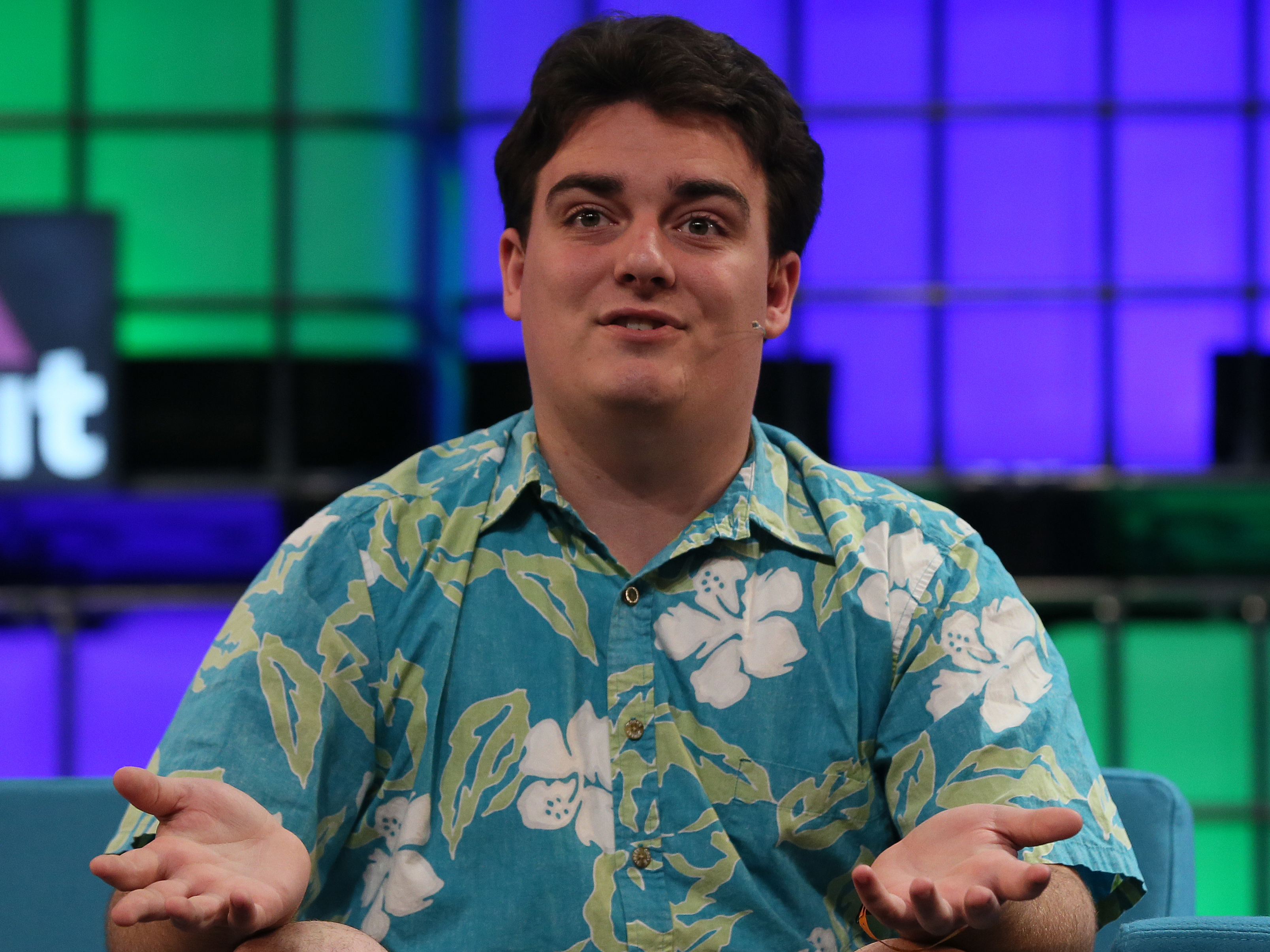- Oculus creator Palmer Luckey, who was ousted from the company he built as a teenager, said the lessons he learned from his time at Facebook were to “Be careful who you trust,” and “Be careful who has control.”
- Facebook bought Oculus back in 2014, and fired Luckey three years later, amidst negative media attention regarding Luckey’s support of an alt-right group and his political activities.
- Luckey has since gone on to work on a tech defense startup that involves preventing border trespassing.
Palmer Luckey, who founded Facebook-owned Oculus VR and subsequently left both companies in March 2017, said he learned the importance of being cautious after his time at Facebook: “Be careful who you trust,” he told Wired’s Steven Levy. “Be careful who has control.”
The California native created the virtual-reality system out of his house as a teenager as a tool “designed by gamers, for gamers,” according to his Kickstarter page from 2012. After Facebook CEO Mark Zuckerberg saw its value as a social platform, Luckey sold Oculus to Facebook for $2 billion at the age of 21. Three years later, he left the company with no detailed explanation from either party as to why.
In the months leading up to his departure, reports of Luckey’s support of alt-right group Nimble America amidst the 2016 election brought some negative attention to Oculus. The reports alleged that Luckey paid for some off-color billboards about then-candidate Hillary Clinton and wrote crass Reddit posts for the group. He denied these claims in a Facebook post, saying he donated $10,000 solely in support of the group’s ability to reach younger voters.
He also apologized for “negatively impacting the perception of Oculus and its partners,” in response to negative comments from people on his Facebook page, and six months later he was out of Facebook – and Oculus.
CEO Mark Zuckerberg told Republican senator Ted Cruz that Luckey wasn't fired due to politics when Cruz asked about his departure during his April 2018 Senate hearing. Whatever the reason, Luckey - who has since gone on to work on a defense tech startup called Anduril - says he'll be more wary of the people he surrounds himself with.

